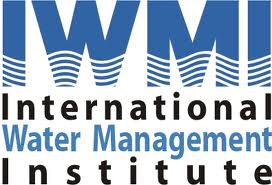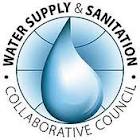/regions/world
World
The International Workshop on Resource Mobilisation (IWRM), Resource Alliance, July 3-6, 2012, Kuala Lumpur
Posted on 14 Jun, 2012 07:48 PMOrganiser: The Resource Alliance
Venue: Kuala Lumpur

The Resource Alliance is an international charity which builds skills, knowledge and promotes excellence within civil society. Our mission is to be the global network for fundraising, resource mobilisation and philanthropy.
UNESCO-IHE Institute for Water Education invites applications for one month course on Water and Environmental law, Apply for scholarships by September 24, 2012, The Netherlands
Posted on 13 Jun, 2012 12:15 PM![]()
The UNESCO-IHE Institute for Water Education was established in 2003. It carries out research, education and capacity building activities in the fields of water, environment and infrastructure. UNESCO-IHE continues the work that began in 1957 when IHE first offered a postgraduate diploma course in hydraulic engineering to practising professionals from developing countries.
Learning objectives:
The key objectives of this short course are to understand how water and environmental resources can be managed sustainably, and what the advantages and disadvantages of different instruments and institutional approaches are.
International Water Management Institute invites applications for Research-cum-Communications Officer, Delhi, Apply by June 30, 2012
Posted on 11 Jun, 2012 06:18 PMContent courtesy: Devnetjobs

International Water Management Institute (IWMI), is a nonprofit scientific research organization, one of the 15 International Institutes under the Consultative Group on International Agricultural Research (CGIAR), with its world headquarter at Colombo, Sri Lanka. IWMI is engaged in various aspects of water and land management.
Job description:
Applications are invited for the following positions for the Delhi office of the International Water Management Institute at NASC Complex, Pusa Campus. The position is for 3 years and can be renewed further based on the performance of the candidate and funding availability. An attractive compensation is offered for the right candidate.
Focus on the Global South invites application for Research Associate-Climate change, Delhi, Apply by June 20, 2012
Posted on 08 Jun, 2012 12:09 PMContent courtesy: Devnetjobs
![]()
A research study is being conducted under the aegis of Focus on the Global South - India on Non-CO2 Greenhouse Gases in India. The study aims to better understand their place in India’s GHG emissions profile and to look at different mitigation options available with respect to Non-CO2 GHGs, develop a framework within which to examine the feasibility or otherwise of these options, and examine possible policy initiatives for their abatement in the context of India’s overall mitigation strategy.
Water Supply and Sanitation Collaborative Council invites application for National Coordinator, India, Apply by June 29, 2012
Posted on 06 Jun, 2012 12:07 PM
Founded in 1990, the Water Supply and Sanitation Collaborative Council (WSSCC) is a membership organization pecializing in sanitation and hygiene for poor people. The defining elements of WSSCC’s identity have remained constant during the 20 years of its existence. Its Members are its heart and soul, and its staff support them. Its vision is of a world where everybody has sustained water supply and sanitation and good hygiene. Its goal is to help achieve that vision.
Description:
The Water Supply and Sanitation Council (WSSCC) is looking for a National Coordinator (NC) for India for the next three years. This concerns a voluntary position with only small, partial compensation, with limited demands on time so that the position can be combined with a paid position. The NC will be instrumental in helping to shape WSSCC’s engagement in India in the years to come.
5th Climate Change International Conference 2012, Climate Change Network, June 8-12, London
Posted on 04 Jun, 2012 01:13 PMOrganiser: Climate Change Network
Venue: London Eco Hotel,
26 Brook St,
London,
W1K 5DQ,
![]()
Bill & Melinda Gates Foundation announces the second round of its Reinvent the Toilet Challenge, apply by May 10, 2012
Posted on 07 May, 2012 01:26 PM
Teesta, Tipaimukh and riverlinking: Danger to Bangladesh-India relations – A paper in Economic and Political Weekly
Posted on 06 May, 2012 11:25 AMBangladesh shares 54 rivers with India. Any unilateral action by India on any of its international rivers will degrade its relations with its neighbours while also adversely affecting its ecology, economy and society. Bangladesh being a riverine and a lower riparian country remains sensitive to matters of water, whether inland or maritime.
The what, why and how of environmental flows: Presentations made during an IUCN training programme in Kathmandu, 2011
Posted on 03 Apr, 2012 01:42 PM Bagmati River at Pashupatinath Temple, Kathmandu, Nepal (Photo: IUCN\Stefano Barchiesi)
Bagmati River at Pashupatinath Temple, Kathmandu, Nepal (Photo: IUCN\Stefano Barchiesi)
Implementation of the interlinking of rivers project (ILRP): Bangladesh raises concerns
Posted on 12 Mar, 2012 11:50 AMAuthor : Md. Khalequzzaman, P.D.